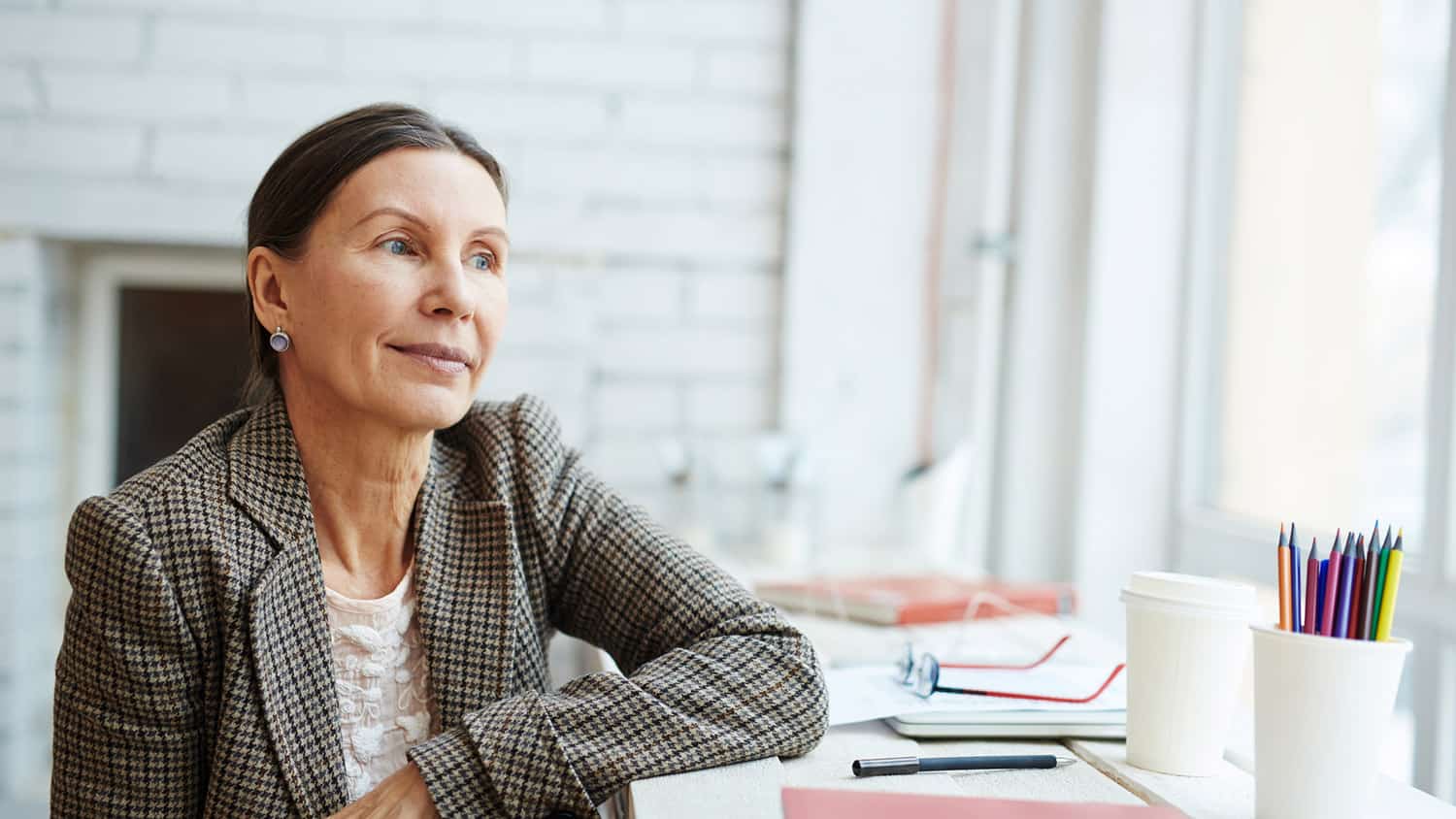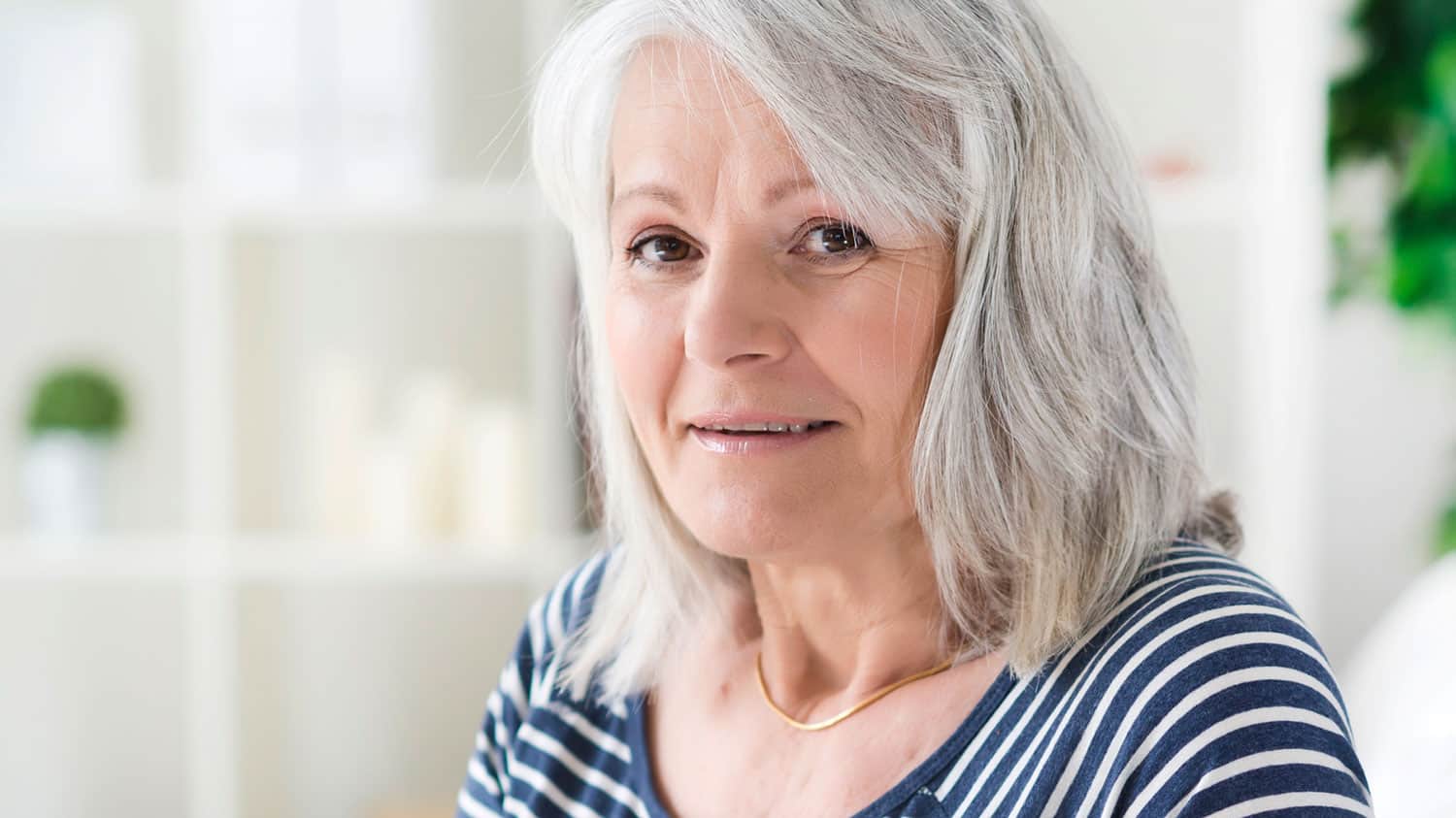
4 Dangers of Being a Single Introvert in Your 60s
Being an aging single introvert, I find that I am now more confident in recognizing and stating my need to be alone. At the same time, when I’m in a social setting, I’m also more confident than I used to be – maybe because I have had the time to recharge my inner battery.
As introverts, we need to balance time in company with time alone. However, as we age, there is a danger that we might not recognize the signs that our natural introversion is turning into isolation.
According to Allies in Aging, senior isolation is becoming an increasingly prevalent health concern globally. So, what are the signs of isolation and what can we do to prevent them?
Lack of Social Interaction
Research shows that socialization is associated with longer life, improved physical and mental health and increased happiness.
Introverts also need social connection. However, we can make those connections on our own term. Do what feels right to you, whether it’s reaching out to others, saying good morning to someone in the street or even thanking the shop assistant for their service.
A Weakness to Worry and Angst
We introverts tend to hold our problems tightly to our chests, often finding it difficult to share. So, find a different way of expressing your feelings and thoughts. Sometimes relieving stress can be as simple as journaling, a practice I use when I have something on my mind.
Beware of addiction to alcohol or other substances that may temporarily ease worry. It’s important to set boundaries – don’t drink alone, and/or stick to the one glass a night rule.
If you have an overbearing problem, find a friend or family member that you are comfortable talking to. Often sharing our worries lessens the burden.
Increased Anxiety and Depression
Anxiety and depression go hand in hand. Anxiety can present itself with insomnia, heart palpitations, dry mouth, nausea, and dizziness. It is often the result of fear and environmental stress – for example, the thought of going out into a large gathering.
When you live alone and don’t have anyone to talk to on a regular basis, there may be a higher risk of anxiety disorder. Depression can creep upon you, so ensure you have someone in your life that you can talk to on a regular basis, and who would notice your mood changes.
Malnutrition
Those of us who live alone have a higher risk of malnutrition, which, in turn, may be a symptom of depression, anxiety or poverty. If you live alone, look at it as a great time for food experimentation – play with recipes, and freeze leftovers for the days you don’t feel like cooking.
If you are living on a budget, get organized and look at sale items that can be used in any number of recipes. Plan your weekly diet in advance, prepare a list and get to the store.
How Can You Avoid These Pitfalls?
Some of the things I do include:
Regular Friendly Walk
I schedule a walk with friends once a week. Usually, I walk twice a week with two different friends, and then the rest of the week on my own.
Volunteering
I volunteer at a couple of local charities that I have chosen carefully. I know what type of work I want to do and ensure that I will not have to participate in activities that bother me. For example, I don’t work on major events where I will have to meet and greet a lot of strangers.
A Check-In System
I got to know my neighbours and they me. As I live on my own, it’s important to have people close by to call upon in an emergency.
We meet every now and then for a glass of wine, they know my family and I know theirs. They also know my schedule, so if they haven’t seen me or my car for a while, they know to connect with me to ensure I’m okay.
If you don’t have good neighbours, then it may be an idea to look at a medical alert system that allows to get help in an emergency.
Live a Holistic Life
Do a holistic life audit. I have reviewed my diet, looked at the type of exercise I do, enhanced my spiritual practice and let go of a lot of things I was doing because I’ve always done them, because my parents did them, etc.
It’s important for introverts to ensure we remain on a healthy path, and that includes nutrition and exercise. Too often it’s easier to nibble on unhealthy snacks or fast food than cook for one. I often google healthy recipes and freeze the remaining portions for use at another time.
Create a Routine
Get up at the same time every day. I don’t waste time in bed as I feel that structure is an important part of my healthy lifestyle. As introverts, there may be a tendency to let our days get away with us, so create a routine and stick with it.
Tune-In to City Life
I keep up with what is happening in my city. I attend musical events and go to plays – sometimes on my own, other time with friends.
As we age, it is important to continue participating in those activities that bring us joy, and, where possible, experiment with new things. When we are isolated, we begin to fear new experiences, exploring our cities or going out alone.
Have a Friend Date
About once a month, I connect with a friend and arrange to meet for a coffee. I’m more comfortable meeting others individually, rather than in groups.
Don’t Hide from Life
I try not to use my introverted nature as an excuse to hide from life. At times, this is more difficult to do, however, so I always ask myself this question: “Am I refusing to go because I don’t want to move out of my comfort zone, or is it because there will be too many people/I’m not interested in the event?”
Sometimes, it’s important to practice discomfort and try something new!
Have a Thorough Rest
When I know I’m going out, I ensure that I am well-rested – how it really does make a difference as to whether I enjoy my outing.
Other ideas include joining a group or activity that you love, like a book club, fitness class, or choir. Yes, extra effort may be required, however, the payoff is noticeable.
Take stock of yourself and your habits on a regular basis. Ensure that you are interacting with others, eating well, exercising and not allowing isolation to creep into your life. You’ll be glad that you did!
Do you consider yourself an introvert or an extrovert? What things do you do as an introvert to avoid social isolation and loneliness? Please share your favorite activities that take you out of your shell.






I moved to a 55 and over community 3 years ago. I am an introvert. Not interested in making “friends” at this time of my life. Too much work. After taking care of my dear husband and mother for years, I couldn’t be in a place where I put energy into seeking new people. At 72, it’s ready for me to take care of myself.
I also want to add, that some ageing neighbors nearby, become toxic with declining mental health, or are preoccupied with their own concerns, or more serious issues Attempting to interact with pie and coffee is naive. One has become verbally abusive and moody. Consider others own problems as some don’t care or want to be involved socially.
First off, Introverts should never be forced to change their characteristics. Imposing on strangers is also awkward and rude. After the lockdown and public openings, and easing pandemic restrictions, I preferred my own pace. Pressure to do so after general isolation based on recommendations like this. The author’s suggestions and lifestyle are not mine. I moved on from aging friends. Terms like solitude and quiescence should be used as it best defines mindfulness. I have gotten fed up with the killer word loneliness. Making brief contact occasionally in real life and zoom activities with others is also beneficial, with work or a regular network. Consider those who are aging no longer having family nearby.
I agree. This article is treating Introverts and Loneliness like a disease. A lot of the time, it is easier to be alone than with people.